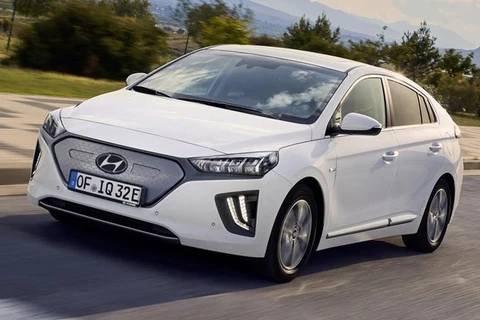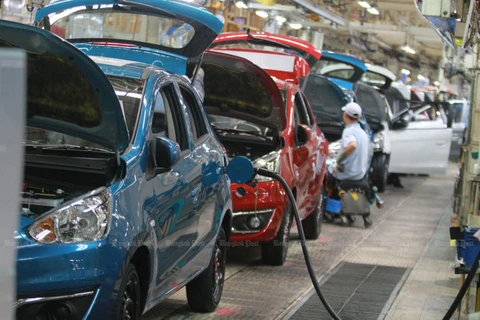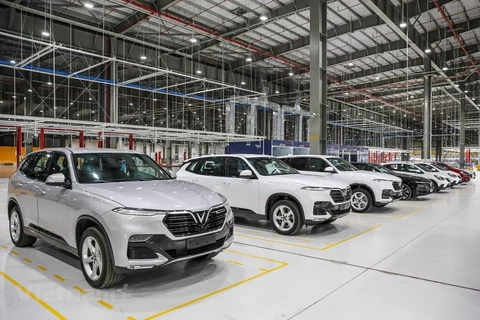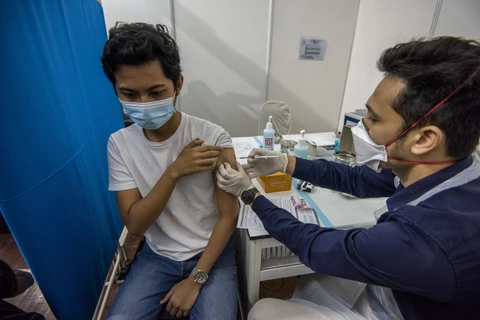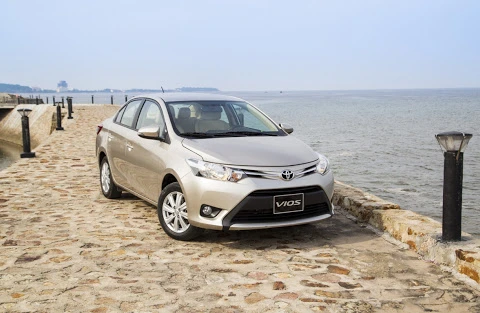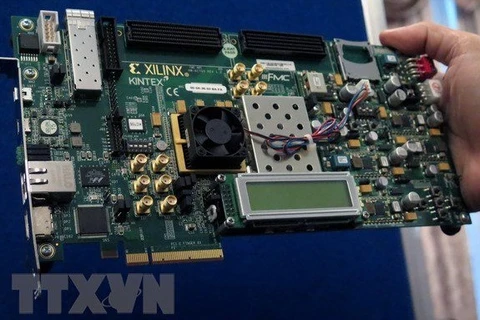 A production line of Toyota Motor Corp in Tsutmusi plant in Aichi prefecture in central Japan. (Photo: AFP/VNA)
A production line of Toyota Motor Corp in Tsutmusi plant in Aichi prefecture in central Japan. (Photo: AFP/VNA)Hanoi (VNA) – The COVID-19 pandemic that broke out across Southeast Asia has triggered a wave of production cuts at auto parts suppliers, with a spillover effect that forced assembly plants to shut down or reduce production, the Nikkei Asia reported.
Swiss chipmaker STMicroelectronics was informed this month that its production plant in Malaysia’s southern state of Johor has to suspend operations. The factory has been halted since July. According to local authorities, more than 200 factory employees have been infected with the coronavirus.
Malaysia has logged more than 20,000 new COVID cases per day. The government imposed its first nationwide lockdown in June.
With the number of staff at automakers and parts factories limited to just 10 percent of capacity, output in certain states had virtually ground to a halt for an extended period.
The Association of Southeast Asian Nations (ASEAN) region has served as a manufacturing hub for the Japanese automotive industry.
According to the Japan Auto Parts Industries Association, ASEAN is home to 30 percent or so of production sites for Japanese auto suppliers, more than any other region in the world.
Southeast Asia's auto parts industry, which is valued for its low-cost labour, supplies parts to not only the region but also Japan, the United States, China, and elsewhere. The recent outbreaks have disrupted those dynamics.
Besides Malaysia, Southeast Asian countries are struggling with infections, affecting parts production.
Toyota and many other Japanese automakers, including Daihatsu Motor, Honda Motor, and Nissan Motor, have had to suspend operations at Japanese assembly plants due to supply disruption in Southeast Asia.
Earlier on August 19, Japanese automaker Toyota, the world's largest automaker, announced that it would have to reduce September’s production volume by 40 percent, the Nikkei Asia reported. The company attributed the decision to a shortage of auto parts due to the spread of COVID-19 in Southeast Asia, which has forced many factories there to close.
German carmaker Volkswagen (VW) announced on August 20 that it would cut production at its main plant, citing unresolved global chip supply problems. According to the German automaker, the global shortage of semiconductors remains persistent.
The outbreak of the COVID-19 pandemic, especially in Malaysia, resulted in the fact that many semiconductor manufacturers have to close. A lot of auto parts manufacturers have built factories in Southeast Asian countries to maintain sustainable shipments across the globe. However, the spread of the coronavirus in this region has affected that strategy, even disrupting the global supply chain of spare parts./.
